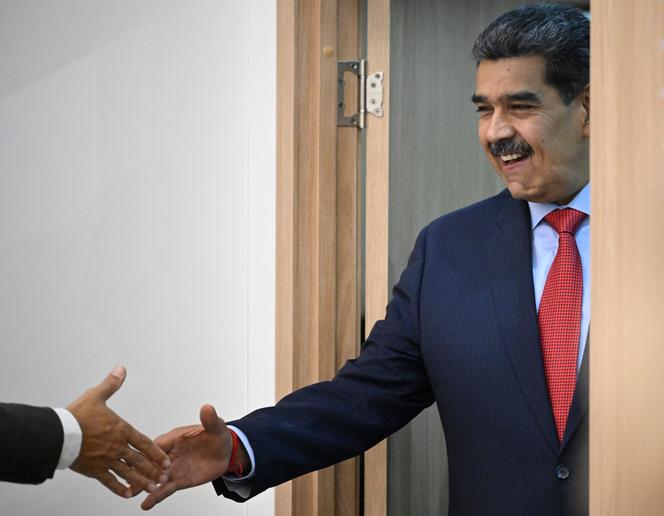


Three months after President Nicolas Maduro's disputed re-election on July 28, heads continue to roll in Venezuela. The former oil minister, Colonel Pedro Tellechea, 48, was arrested on Monday, October 21 in Caracas, along with several of his former colleagues. All are accused of "serious crimes that compromise the highest interests of the nation," the public prosecutor's office said, without indicating how many other defendants there were, nor their identities.
The arrest of Tellechea, who had served as oil minister and president of the state-owned Petroleos de Venezuela (PDVSA) from January 2023 to August 2024, came as a surprise. He seemed to enjoy the absolute confidence of the head of state, who had repeatedly praised his management of the oil sector.
On October 17, the National Assembly dismissed Juan Carlos Delpino as a member of the National Electoral Council (CNE), accusing him of "betraying the country." On the evening of July 28, Delpino, 65, did not attend the CNE's proclamation of the presidential election results. At the end of August, after leaving the country, he disputed the official version of "computer hacking" preventing the CNE from publishing the results, and denounced a "lack of transparency" in the election.
Neither the Americans nor the majority of Latin American countries have recognized the election results. Nor did the European Union, which on Thursday awarded the Sakharov Prize for Freedom of Thought to Venezuelan opposition leader Maria Corina Machado and presidential candidate Edmundo Gonzalez Urrutia, who, in the Europeans' view, clearly won the election and now lives in exile in Spain. "I am honored to wake up to the news that the European Parliament has awarded the Sakharov Prize 2024 to the Venezuelan democratic movement," wrote Machado in a statement published on social media platform X. Declared ineligible by a court ruling, she had been unable to run for president.
While the arrest of the former oil minister inflamed rumors and speculation in Caracas, Maduro flew to Kazan, Russia, on Wednesday for the BRICS summit. On the sidelines of the meeting, Maduro met his Russian counterpart, Vladimir Putin, to whom he expressed his "admiration." The Russian president had recognized the result of the July 28 presidential election. "Venezuela is a longstanding and reliable partner of Russia," emphasized Putin, who said he supported Venezuela's aspiration to join the BRICS countries. But Brazil's left-wing president, Luiz Inacio Lula da Silva, who has distanced himself from Caracas, vetoed Venezuela's membership.
You have 59.37% of this article left to read. The rest is for subscribers only.
